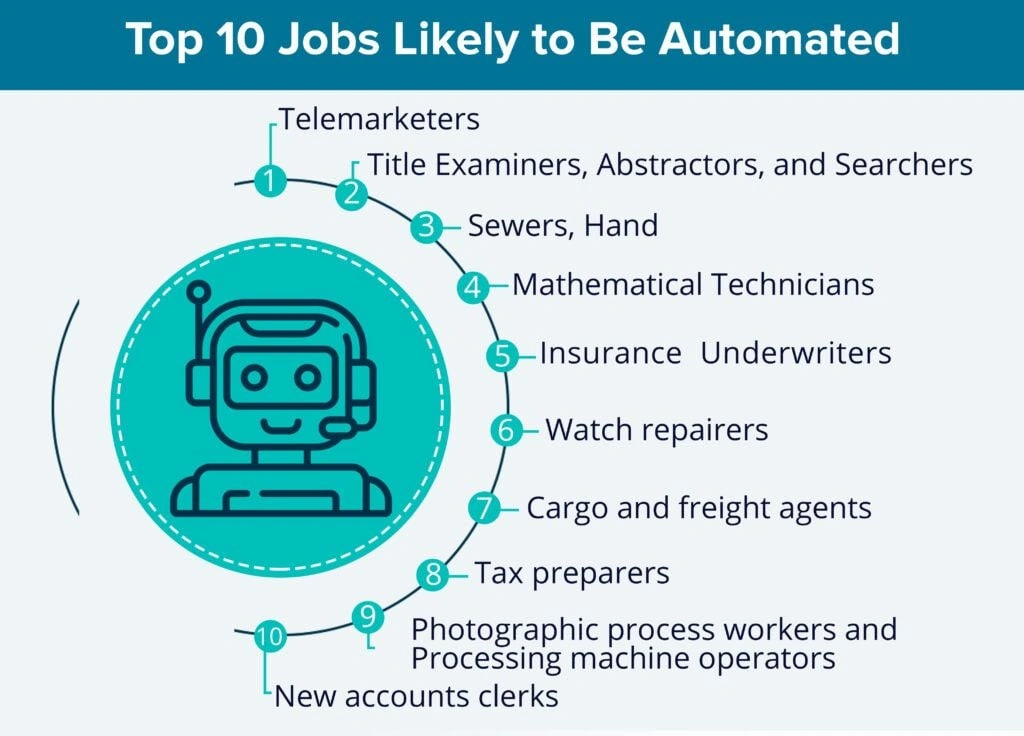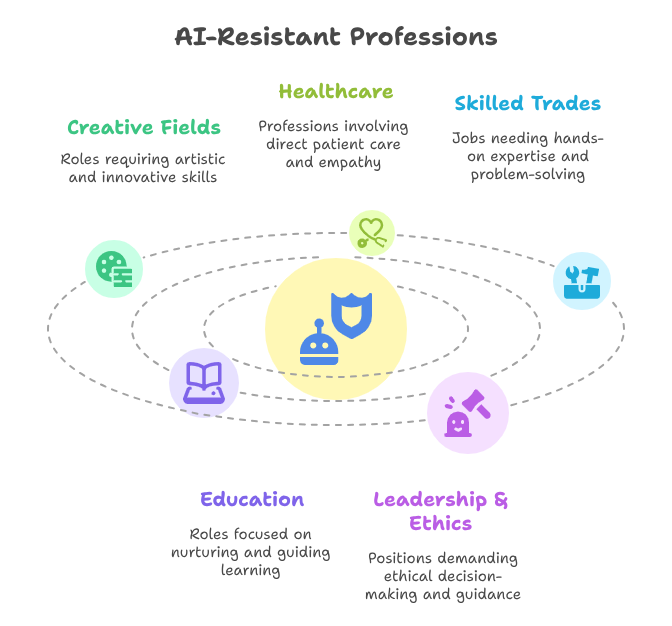Will AI Replace Your Job?
Artificial intelligence is transforming the global workforce at an unprecedented pace. From ChatGPT writing essays to Midjourney generating digital art and autonomous vehicles navigating complex city streets—tasks once thought to require human intellect are now being handled by machines.
So the pressing question isn’t just hypothetical anymore: Will AI replace your job? And more importantly—how can you future-proof your career?
AI and the Future of Work: The Big Picture
The impact of AI and jobs is both disruptive and transformative. According to the World Economic Forum, AI could automate 85 million jobs by 2025. But there’s a positive side too—97 million new roles are expected to emerge.
The true AI automation impact will vary depending on:
- Your industry
- The nature of your job tasks
- Your ability to adapt and upskill
In this post, we’ll explore:
- Jobs most at risk of automation
- Jobs safe from AI
- Industry-specific trends in the AI job market 2025
- Skills you’ll need to stay relevant and secure a future-proof career
AI and the Future of Work: The Big Picture
The impact of AI and jobs is both disruptive and transformative. According to the World Economic Forum, AI could automate 85 million jobs by 2025. But there’s a positive side too—97 million new roles are expected to emerge.
The true AI automation impact will vary depending on:
Your industry
The nature of your job tasks
Your ability to adapt and upskill
In this post, we’ll explore:
Jobs most at risk of automation
Jobs safe from AI
Industry-specific trends in the AI job market 2025
Skills you’ll need to stay relevant and secure a future-proof career
How AI Is Changing the Job Market in 2025

AI is no longer a future trend—it’s a present reality. As of 2025, 78% of global companies report actively using AI, up from 55% the previous year. In the U.S., private AI investment has surged to ₹9205.91 billion, significantly outpacing China.
Key AI Employment Trends:
- 30% of U.S. work hours may be automated by 2030
- 60 million jobs in the U.S. and Mexico could be affected within a year
- 49% of companies believe AI will create more jobs, compared to just 23% expecting job losses
AI is reshaping job structures, not just eliminating roles. It’s disrupting tasks—especially repetitive ones—within existing jobs.
Jobs at High Risk of AI Automation
If you’re wondering “Will AI replace my job?”, it depends on what you do. Roles involving predictable, repetitive, and rule-based tasks are most vulnerable.
| Job Role | Risk Level | Why It’s at Risk |
|---|---|---|
| Data Entry Clerks | 100% | Fully automatable tasks |
| Telemarketers | 94% | Replaced by AI chatbots |
| Cashiers | High | Rise of self-checkout kiosks |
| Bookkeeping Assistants | High | AI-powered accounting software |
| Market Research Analysts | 53% | AI-driven insights and predictions |
| Sales Representatives | 67% | Automated lead qualification |
Stat: Walmart’s use of AI-powered self-checkouts has led to a 20% drop in cashier jobs.
Insight: AI doesn’t eliminate all jobs—it targets tasks. So roles made up of repetitive tasks are more likely to be automated.
Jobs Safe from AI: Careers Least Likely to Be Replaced
Thankfully, many careers are far more AI-resistant. These typically require human creativity, empathy, judgment, or manual dexterity.
AI-Proof Professions Include:

- Creative Fields: Writers, designers, content creators, musicians
- Healthcare: Nurses, therapists, paramedics
- Skilled Trades: Electricians, plumbers, mechanics
- Education: Especially early childhood and special education
- Leadership & Ethics: HR managers, executives, judges
💡 Example: Nurse practitioners are projected to grow by 45.7% by 2032, with median salaries over ₹10 million annually. Their roles require emotional intelligence and real-time decision-making—skills AI can’t replicate.
These examples illustrate that many jobs safe from AI aren’t in tech—they’re in human-focused domains.
Future-Proof Careers: Skills That AI Can’t Replace
To stay relevant in the AI job market of 2025, professionals need to double down on skills machines can’t master. The goal is not to compete with AI, but to complement it.
🔑 In-Demand Skills:
- Technical proficiency (AI tools, no-code platforms)
- Data analysis & interpretation
- Creative thinking and storytelling
- Problem-solving & adaptability
- Emotional intelligence and communication
Final Thoughts: The Future of Jobs in an AI-Powered World
So, will AI replace your job? For some, the answer is yes—especially if your job involves routine, predictable tasks. But for most, the opportunity lies in adaptation.
The truth is, AI will create more jobs than it replaces. Roles that embrace AI, leverage human strengths, and focus on continuous learning will thrive. Your path to a future-proof career starts with skill development and a mindset of collaboration with AI, not competition.

